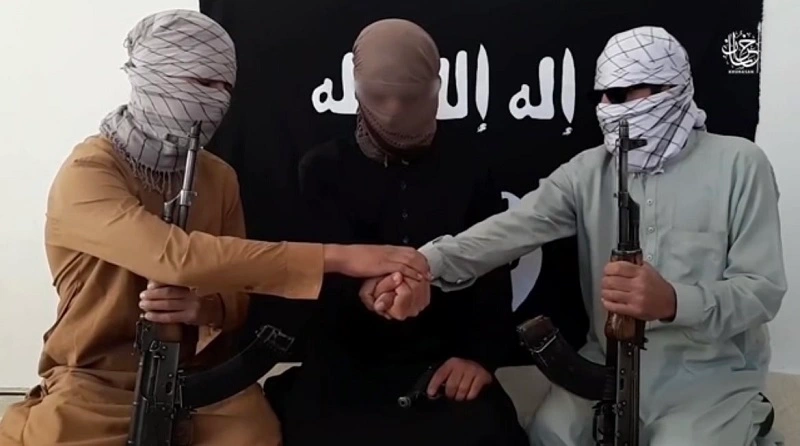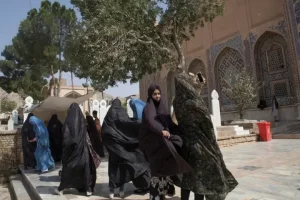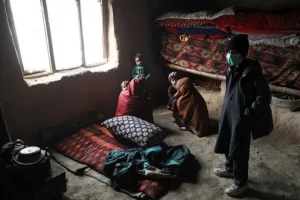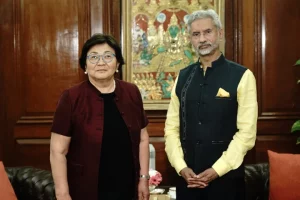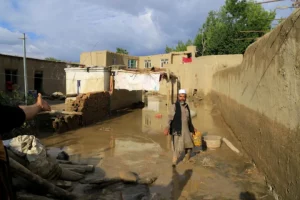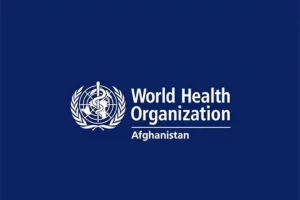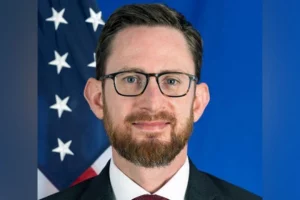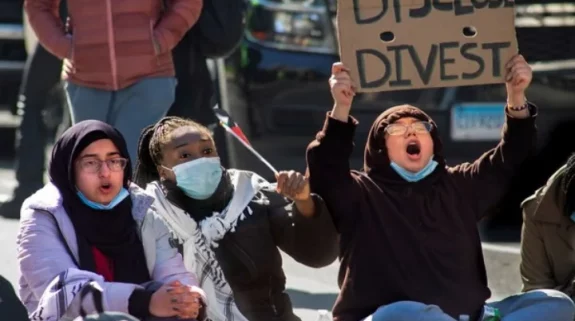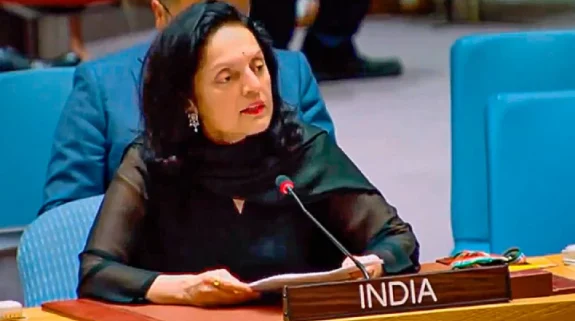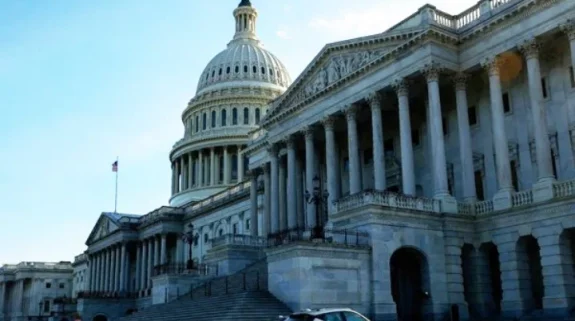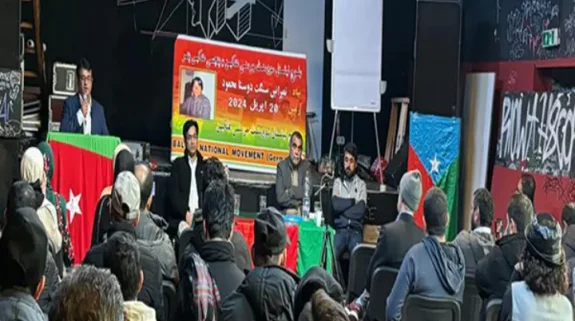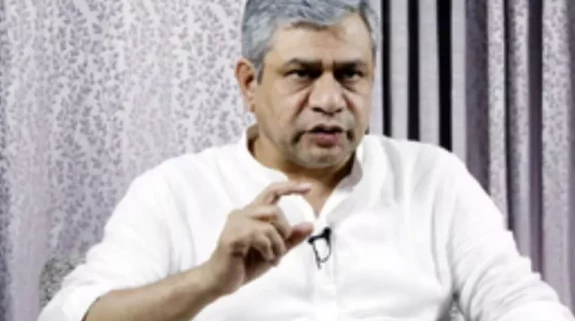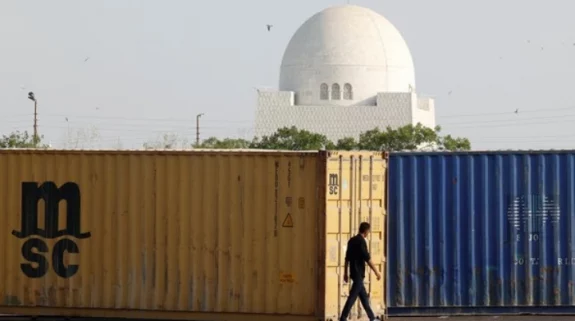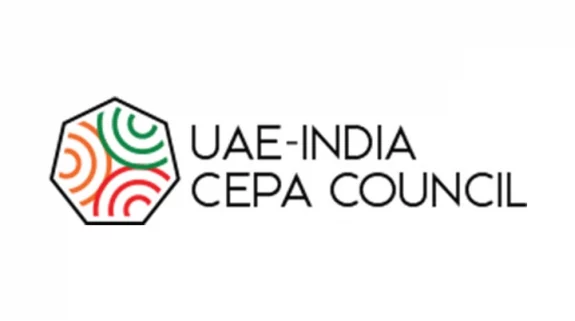India, the current president of the United Nations Security Council (UNSC), has once again spotlighted the increasing threat posed by the Islamic State in Iraq and the Levant-Khorasan (ISIL-K), an affiliate of the extremist terrorist group known as Daesh, in Taliban-ruled Afghanistan.
Chairing the annual UNSC briefing on Afghanistan in New York earlier today, India’s Permanent Representative to the UN, Ambassador Ruchira Kamboj noted that 60 UN-sanctioned individuals occupy cabinet and senior positions in the Taliban administration which maintains close relations with Al-Qaida core leadership and affiliated groups, such as Al-Qaida in the Indian Subcontinent (AQIS).
“Da’esh maintains the potential to attract disillusioned Taliban and foreign fighters into its ranks, thereby enhancing its capability to carry out attacks and its ability to regain territorial hold in the country, as well as the potential to establish so-called Islamic caliphate in the region in the future,” Kamboj told the gathering.
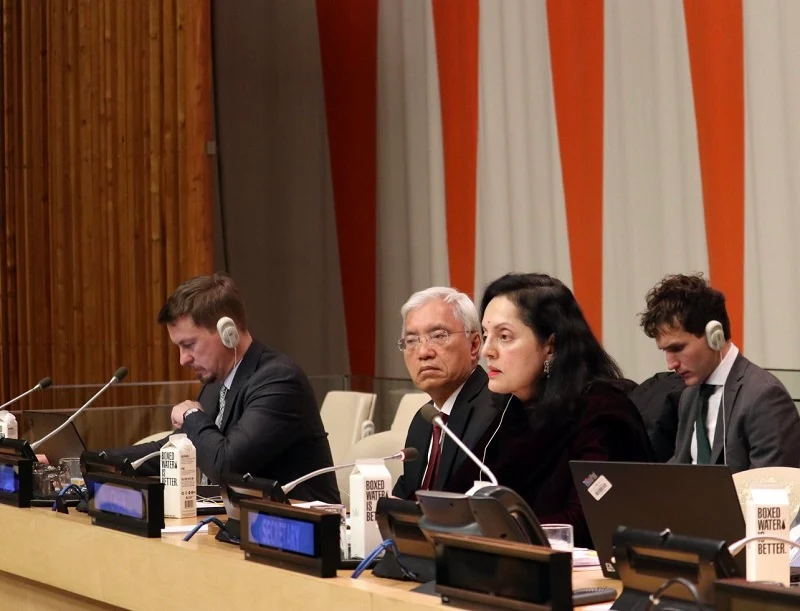
After the death of ISIS leader Abu Al-Hasan Al Hashemi Al-Qureshi, many ISIS-affiliated groups including ISIS (KP) have announced allegiance to the new leader, Abu Al-Husayn Al-Husayni.
Stressing on the observations made by the UNSC Monitoring Team, the Indian diplomat mentioned that while on August 1 the United States announced that at the end of July, Ayman Al Zawahiri, the leader of Al-Qaida was killed in a Kabul compound, the same has not yet been confirmed by the Taliban or Al-Qaida.
The meeting took place on a day when the Taliban issued a decision banning women from public and private universities, inviting worldwide condemnation.
#Taliban in #Afghanistan have now banned girls’ secondary & higher education completely!
They had previously closed girls high schools, with this ban the doors of all universities & higher education institutions will be closed for girls! Extremely sad news!#LetAfghanGirlsLearn pic.twitter.com/zp0CAIyc7h— Awais Khan (@iamAwaisbuneri) December 20, 2022
“Since taking power, concerns have been expressed that the group has reversed policies and gone back on commitments made prior to assuming power, as reported by the Monitoring Team. Concerns have also been expressed on the further erosion of human rights, including the rights of women and girls, as well as lack of progress on inclusive governance,” stated Kamboj.
Quoting a report from the United Nations Office on Drugs and Crime (UNODC), the Ambassador said that, despite a decree issued by the Taliban in April banning the cultivation, use and trafficking of narcotics, there has been a reported 32 per cent increase in opium cultivation in 2021.
At the same meeting, Mahbouba Seraj, an Afghan women human rights defender and Executive Director of the Afghan Women Skills Development Centre, said women are literally being erased from public life, down to the beheading of female mannequins in shop windows.
#Taliban goes full blown #Daesh with their new clothes in Deh Rawod, #Uruzgan, #Afghanistan 🇦🇫
Or does Taliban = Daesh? 🤔 pic.twitter.com/2oPIlMMvP8
— Roy Grinwis (@RoyGrinwis) December 12, 2022
She also cautioned that international terrorist groups have been wreaking havoc with impunity as ISIL-KP, Al-Qaida and Al-Qaida in the Indian Subcontinent have got emboldened.
“The world stayed silent when Al-Qaida established its base in Afghanistan and when the terrorist groups expanded their tentacles within the region, opposing the naive belief that the terrorist entities that are having a free rein in Afghanistan will spread within the region and nothing more. History teaches us otherwise,” she asserted, recalling the 9/11 terrorist attack.
Also Read: India leads UN efforts to protect Central Asia from terrorism and violent extremism






